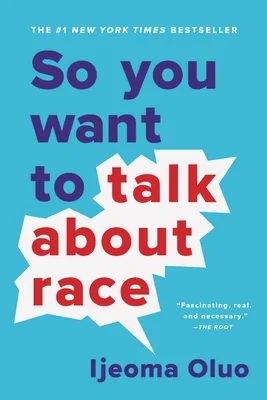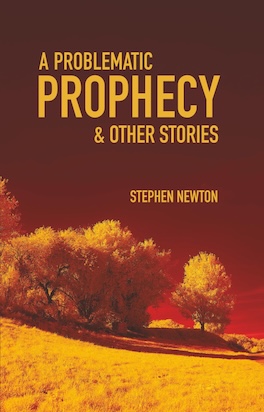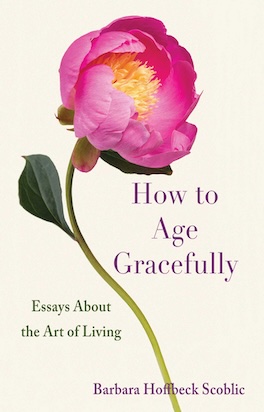Have you ever tried to ignore the uncomfortable conversations about race that happen around you? Have you ever been angry that your well-intended comment has been labeled as racist? Have you ever defended yourself as not a racist because you have African American/Asian/Other People of Color friends? Have you accused a person of color of being overly opinionated or sensitive when someone cracks a racist joke? Do the words “white supremacist society” make you cringe?
If any of the above has happened to you, So You Want to Talk About Race by Ijeoma Oluo is the book for you. It’s a vital book in our divisive society, to help all of us understand what is racial oppression and why we need to talk about it.
This may not be a popular opinion, but here it is: As humans, we are inherently racist. Our tribal roots make us feel safer around people who look like us. However, this does not justify racism— in our globalized world, we need to question and address our tribal conditioning. We need to treat everybody, regardless of the color of their skin, with dignity and respect.
From the get-go, Oluo makes a strong case that race is a system of power and that racism is a systematic oppression against people of color. She says that its goal was to “profit and comfort of the white race, specifically, of rich white men. The oppression of people of color was an easy way to get this wealth and power and racism was a good way to justify it.”
This may sound harsh, but it’s true. Racism goes way back to slavery when slaves imported from Africa were considered less human than their white masters. They were treated as property, were abused and dehumanized. Just because slavery was technically abolished 153 years ago doesn’t mean that racism died with it. On the contrary, it still thrives. In her book, Oluo provides statistics about African Americans and how they are less likely, compared to White Americans, to graduate from high school and go to college. Furthermore, they are also more likely to be incarcerated, repeatedly. Not to mention that the number of African Americans who died at the hands of police brutality is high, and the number of prosecutions low.
Something is broken, and we must talk about it.
As a Taiwanese Canadian based in Hong Kong, my reality is vastly different than the African Americans in the United States. Hong Kong and Canada have their own set of problems related to racism, but nothing like it is in the United States. In the autumn of 2017 and the winter of 2018, I lived in Savannah, Georgia, taking classes for my M.F.A. degree in writing at Savannah College of Art and Design (SCAD). There, I made a close friend. Her name is Halle. I adore her because she is talented, thoughtful, and one of the most poetic writers I know. She is also smart, funny, and a beautiful person inside out. She is also the first African American I can call a friend. Growing up on the west coast of Canada in the 90’s, I didn’t know very many African Canadians, let alone one I could call a friend.
Watching American news in Hong Kong, I was aware of police brutality, but I never knew how deep the fear is until I had spent time in the United States. When Halle and I became friends, I got a glimpse of her world and reality. Earlier this year, we took a short road trip from Savannah to Atlanta to see a talk by the amazing Zadie Smith, one of our favorite writers. Our spirits were high in the car—we were singing along to the music, gossiping, laughing—until a police car drove by us. Halle flinched and her whole body tensed.
“What’s wrong?” I asked.
“Oh, I get nervous when I see a police car,” she said, her hands gripping the steering wheel, her eyes frightened, looking straight ahead.
How can the police, who are supposed to protect the citizens, put so much fear in a law-abiding young woman? Halle was so terrified of getting pulled over, she didn’t go over the speed limit once during the whole 4.5-hour journey.
During that trip, I begin to understand the privilege of not having that same fear. Still, her fear resonated with me; it made me sad and angry.
So You Want to Talk About Race helped me further understand Halle and millions of African Americans’ experience in the United States. It explains how racism was created and how it still works in America. Oluo, in her informal and engaging way, defines racism, how to talk about it, and how to do something about it. She defines racism as “any prejudice against someone because of their race, when those views are reinforced by systems of power.” She further elaborates that racism is interwoven into our social, political, and economic system. She says, “instead of trying to isolate or ignore race, we need to look at race as a piece of the machine, just as we’d look at class or geography when considering social issues. Race alone is not all you need to focus on, but without it, any solution you come up with just won’t work.”
In addition to defining racism, Oluo also discusses different concepts that are related to racism, such as the importance of intersectionality, the disrespecting of oppressed racial groups through cultural appropriation, and the harmful effects of microaggression. Oluo is biased, as she should be—African Americans are dying within the racist system in America.
For those of us who stand by and do nothing when our colleagues make a racist comment or claim that we are not racist since we have African American friends, or think our African American friends are being over sensitive when something happens to them, remember:
“It’s the system, and our complacency in that system, that gives racism its power, not individual intent. Without that white supremacist system, we’d just have a bunch of assholes yelling at each other on a pretty even playing field—and may the best yeller win.”
So You Want to Talk About Race? You probably want to say, not really. But we must. Please read the book. Please recommend it to your friends. If you are a teacher, please assign it as a class reading. If you are a parent, please read it with your children (though there are some cuss words in it, FYI). If you are a manager, please use this book when doing cultural sensitivity training. It’s time we all get uncomfortable and start talking about race.
Review originally posted on the Kayo Chang Black’s website August 9, 2018.






